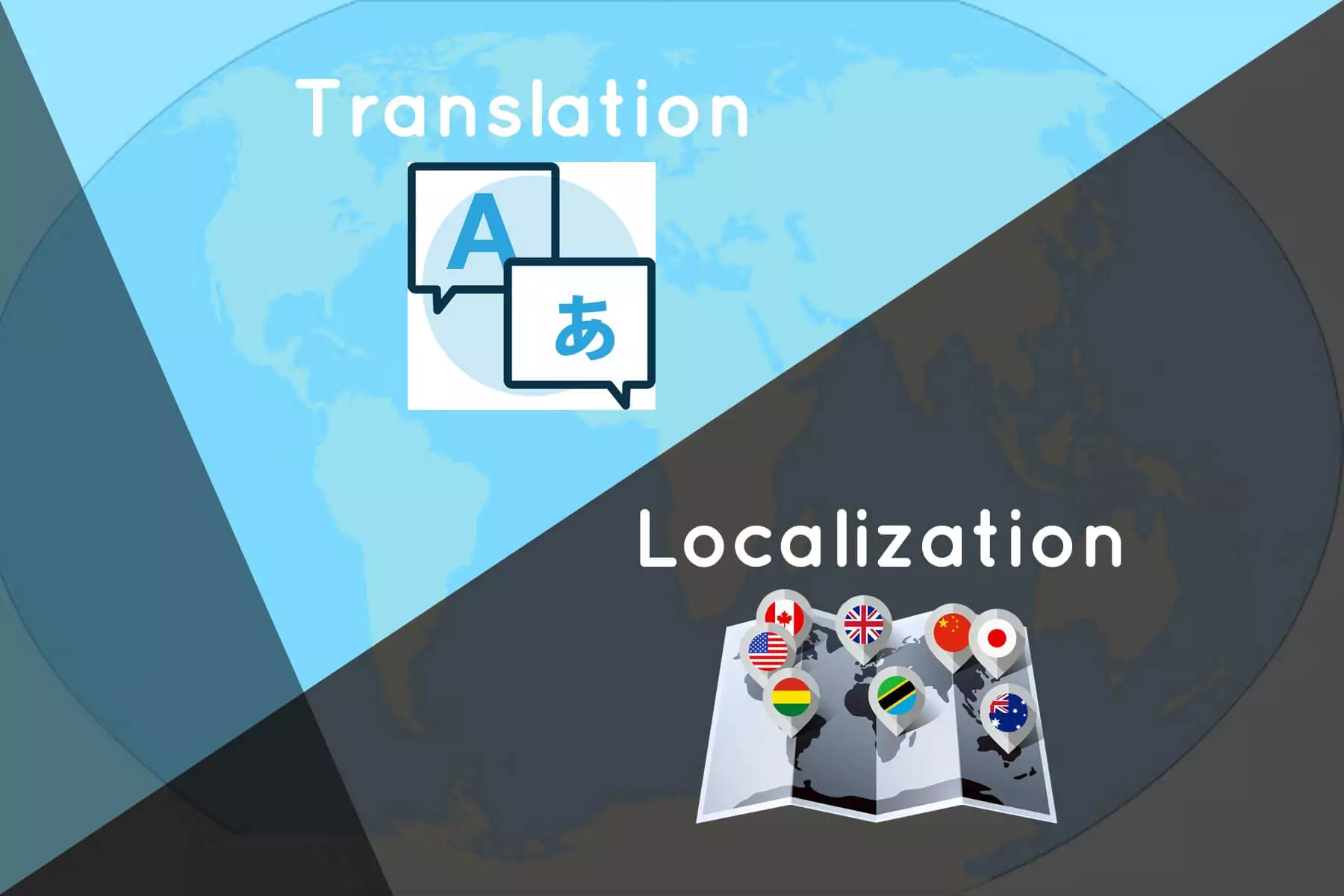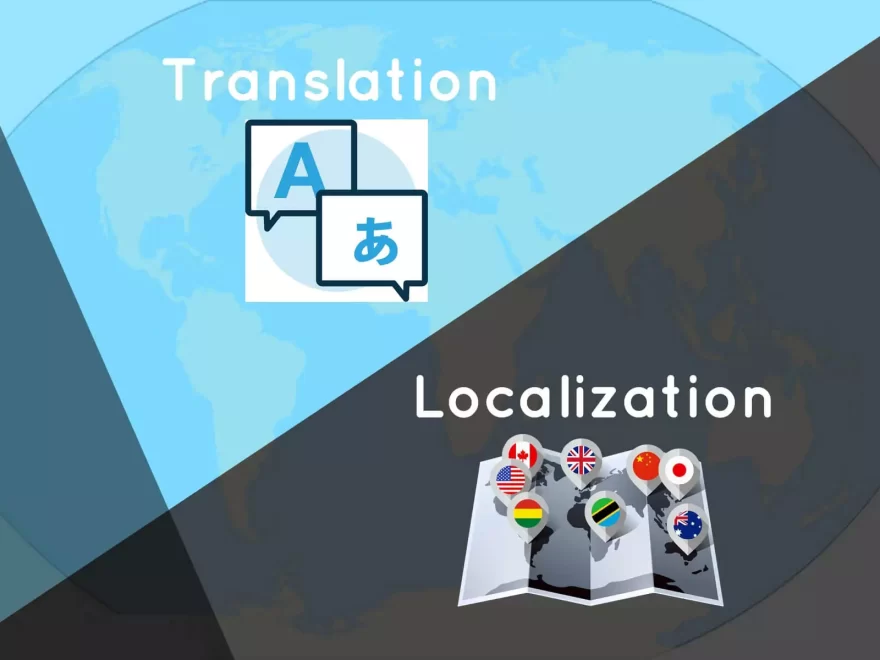What are the two commonly confused terms involved in language translation? Did you say “translation” and “localization”? Congratulations, you’re correct!
Translation and localization are two distinct processes that can be related but should not be confused with one another. Many people get them wrong, even though they are frequently used in the same context.

Let’s take a look at these two terms, and see how they differ from one another:
Translation
Translation is a written or spoken form of language that has been translated into another. This includes the conversion of a text from one language into another. It is also important to provide culturally relevant thoughts and phrases that carry over the true meaning of the message. This includes things such as the correct connotation, slang, cultural reference, etc.
Localization
Localization is a process where a product, website, or software application needs to be adapted for a specific culture and language market. The goal is to create a contextually appropriate experience for the user in this target locale.
The entire process of localization includes things such as translation, adaptation, production, QA testing, and marketing support. These are all factors that need to be considered when bringing a product or service into different markets where people live and speak differently than you do.
So, what’s the best way to differentiate between translation and localization? Think of it this way: Translation is a “mechanical” process that uses language as its primary focus—whereas localization has culture as its primary focus.
Localization takes into account how people in other countries live, their cultural nuances and preferences, and how and why they might use a particular product or service.
The next time you’re faced with translation vs. localization, remember: Translation is the process of converting one language into another to communicate meaning—whereas Localization takes cultural considerations into account when making your message relevant.

Jerald is a blogger with a passion for technology who has been writing about the latest in the world of gadgets and gizmos. They are an avid reader of Science-Fiction novels and love to spend time with their wife and kids.

